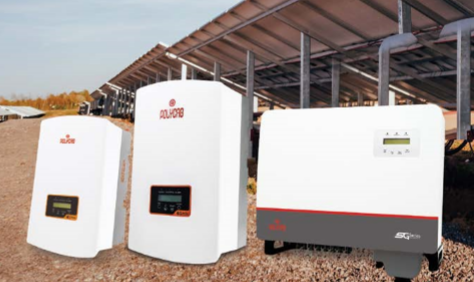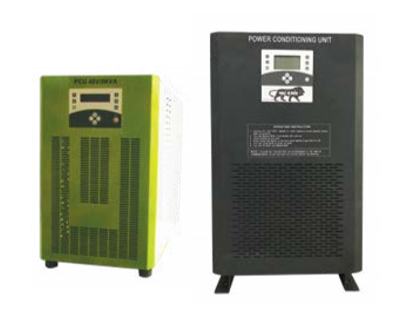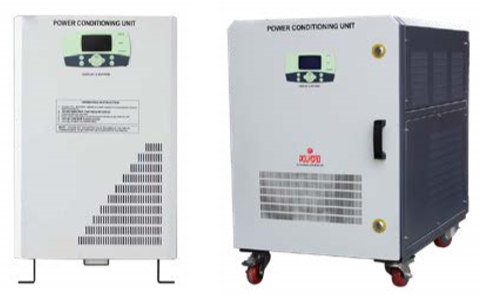Solar Inverter

On Grid Solar Inverter
A solar on-grid inverter is an electronic device that converts the direct current (DC) electricity generated by a solar panel into alternating current (AC) electricity that can be fed into the electrical grid. These inverters are designed to synchronize the solar panel's output with the grid's electricity frequency & voltage to ensure that the energy produced by the solar panel is in phase with the electricity grid. On-grid inverters are typically installed in homes or commercial buildings that are connected to the electricity grid, & they allow the user to sell any excess electricity generated by the solar panels back to the utility company. On-grid inverters are generally more affordable than off-grid inverters since they do not require batteries or other energy storage systems.

Off Grid Solar Inverters
A solar off-grid inverter is an electronic device that converts the direct current (DC) electricity generated by a solar panel into alternating current (AC) electricity that can be used to power electrical devices in a standalone system that is not connected to the electricity grid. These inverters are used in off-grid solar power systems, which typically include a battery bank or other energy storage system to store excess energy generated by the solar panels. Off-grid inverters are designed to ensure that the electrical output of the solar panels is stable & reliable, even when the system is not connected to the grid. Off-grid inverters are generally more expensive than on-grid inverters, due to the additional components required to store & manage energy in the absence of a grid connection. Off-grid solar power systems are typically used in remote locations or in situations where a grid connection is not available or is unreliable.

Hybrid Solar Inverters
Solar hybrid inverters are electronic devices that combine the features of both on-grid and off-grid inverters to create a more flexible solar power system. These inverters can be used in a variety of applications, including grid-tied systems, off-grid systems, and hybrid systems that are connected to both the grid and a battery bank. Solar hybrid inverters allow users to maximize the use of renewable energy by storing excess energy in a battery bank for later use, even when the system is connected to the grid. These inverters are typically more expensive than standard on-grid inverters, due to the additional components required to manage energy storage and battery charging. However, they can provide greater energy independence and reliability, making them a popular choice for residential and commercial solar power installations.
